Manual vs Electric Toothbrushes – Which Is Better For The Health Of Your Teeth And Gums And Why?
If you go to the supermarket to buy a toothbrush, you will find a wide array of options which can make choosing the right toothbrush a daunting task. These days, the price of electric toothbrushes are such that they may be a viable option for you. To help you decide between manual vs electric toothbrushes, read on. This article will discuss the pros and cons of both toothbrush types to allow you to make an informed decision.
The Manual Toothbrush
Manual toothbrushes have been in use for more than a century for oral hygiene maintenance and have proven to be a reliable and time-tested option. While they may not be powered by a battery or controlled through a timer, these toothbrushes still get the job done.
Pros of the Manual Toothbrush
- Accessible – even if you forget to bring your manual toothbrush with you on vacation, regular toothbrushes are available just about anywhere.
- Affordable – compared to electric toothbrushes, manual toothbrushes are very cost-effective. You can buy one for less than $3. So, if you are tight on the budget, you can still get sparkling white teeth with a manual toothbrush.
Cons of the Manual Toothbrush
- Risk for Gum Recession – a research study has shown that people who use a manual toothbrush tend to brush too hard when compared to electric toothbrush users. Brushing too hard can result in gum recession, tooth sensitivity, and even tooth cavities in the long run.
- Inconsistent Brushing Time – the American Dental Association recommends brushing your teeth at least for 2 minutes to achieve optimal oral hygiene. Measuring your brushing time when using a manual tooth brush can be hit and miss.
The Electric Toothbrush
Pros of an Electric Toothbrush
- Ease of Use – the electric toothbrush is handy for physically or mentally challenged individuals who do not have the dexterity to clean their teeth properly using a manual toothbrush.
- Time your Brushing – most powered toothbrushes come with a timer that helps you clean your teeth for at least two minutes. Some modern electric brushes have an option to remind you after 30 seconds to move to the next quadrant of the mouth – ensuring that you clean all of your teeth equally.
- Track your Progress – some “smart” electric brushes can connect with your smartphone and help you keep track of your oral hygiene routine. This is particularly useful for growing children to develop good dental hygiene habits.
- Safe for Gums – most modern electric brushes have built-in sensors that warn users – or even stop working – if they brush too hard. In this way, the gums are protected from injury and recession.
- Suitable with Orthodontic Appliances – in addition to an interdental brush, dentists often recommend powered toothbrushes to individuals who are wearing braces. This is because tooth cleaning becomes challenging with braces, and the bristles of a powered brush often penetrate deeper than the regular brush – and ensure better tooth cleaning. A recent research study published in 2021 has shown that powered toothbrushes tend to offer better oral hygiene maintenance than manual ones in individuals undergoing treatment with fixed braces.
- Fun for Kids – tooth brushing may not be an activity that kids look forward to every day. Some electric toothbrushes are specifically designed for kids and reward them for brushing their teeth via an app on their smartphones, thus converting a mundane activity into a fun-filled one.
Cons of Electric Toothbrushes
- Cost – compared with regular toothbrushes, electric brushes are much more costly – ranging from $15 – $250.
- Brush Head Replacement – finding the brush head compatible with your toothbrush can often be a difficult task, as they may not be available everywhere – especially if you are travelling overseas.
- Portability – electric toothbrushes, especially those charged through a dedicated charging station, are often not very not travel-friendly.
So, Which Toothbrush to Choose?
Now that you know the pros and cons of manual vs electric toothbrushes you are better placed to make an informed decision about the best toothbrush for you or your family.
Regardless of your choice, the bottom line is that both manual and electric toothbrushes ensure good oral hygiene maintenance – provided they are used correctly and regularly.
If you are not sure which toothbrush is most suitable for you, contact your dentist. They will recommend an appropriate option based on your oral hygiene status and treatment needs.

